Williams’ fate in jury’s hands
By Bob Steenson, bsteenson@charlescitypress.com
Antoine Williams testified for almost two hours Tuesday morning, explaining what happened in the days leading up to and on the night that he shot Nathaniel Fleming.
Jurors began deliberating in the trial of Williams Tuesday afternoon and will resume Wednesday morning.
Williams, 36, most recently of Charles City, is charged with first-degree murder in the shooting death of Fleming, 36, of Mason City, on June 30 in Charles City. Williams says he thought Fleming was reaching for a gun and he shot Fleming in self-defense.
Under questioning by one of his defense attorneys, Steven Kloberdanz, Williams began talking about what led up to the night of the shooting.
He said he met Fleming through his sister, Barbara Williams, in May. After a falling out where they were living in Mason City, Barbara Williams and Fleming needed a place to stay and Williams offered to let them live in his apartment, he said.
They lived in his apartment from about the end of May until a few days before June 30, Williams said.
Kloberdanz asked about Fleming’s characteristics, and Williams agreed that Fleming was disagreeable and aggressive.
“Did you find him to be someone that threatened violence?” Kloberdanz asked.
“I did, definitely, because of the stories he would tell me, why he was wanted and on the run, and past history and the like,” Williams said. “He let me in on a lot of things. I knew he was a person who always carried weapons, which he acknowledged he had once he got to Charles City as well.”
Williams said he had seen Fleming carry a weapon once and described it as “a .40-caliber with a 30-round extended clip on it. That means they have probably altered the gun to make it automatic so when you fire it it sprays.”
“I just thought he was a real intimidating guy who liked to carry weapons,” Williams said.
Kloberdanz asked Williams about what happened on June 30.
Williams said that later in the afternoon he was standing around outside the Clarkview Apartments when Fleming drove up.
“He pulled up crazy. He got out of his car crazy. He could definitely be intoxicated,” Williams said. “He kept screeching the tires.”
Williams said Fleming had tried to slap one woman who told Fleming to stay away and tried to hit or intimidate a woman who was trying to cross the street by driving toward her with his vehicle.
At one point Fleming became upset outside the apartments and swore and warned people they “better not be right around when I get back or I’m gonna’ spray this (place) up,” then drove away, Williams said.
“When people say that, they’re gonna shoot,” Williams said. “When people start making gestures about guns, man, it makes me feel a certain type of way, real nervous and jittery, because I don’t want to be shot no more.”
He knew a friend, Ed Brown, had a gun, and Williams asked Brown if he could carry it because Fleming had made threats that he was going to shoot Williams.
Williams said he went back to the apartment parking lots because he was waiting for a woman who he had promised to help babysit her kids that night and was just standing around when Fleming pulled up.
Williams said he went over to talk to Fleming to try to calm him down and Fleming accused him of being involved with people who had beaten up Fleming weeks earlier.
At that point, Williams said, “Fleming said, ‘You know what, f— that,’ and he started reaching for what I thought was a gun.”
Williams said he pulled out the gun he had, turned his head and covered his face with his arm to protect himself and fired into the vehicle.
Williams said Fleming was still conscious and he was concerned that Fleming could still reach for a gun, so he pulled him out of the vehicle. Then he got into the vehicle and drove off
Williams said Fleming did not appear to be mortally wounded, and was still talking.
Williams continued to testify about calling and visiting people in Charles City, then going to Waterloo then to Chicago where his mother lived.
After Kloberdanz was done, Iowa Assistant Attorney General Coleman McAllister began pointing out differences in what Williams had testified that morning and what he had told a special agent with the Iowa Division of Criminal Investigation who interviewed Williams for more than four hours after Williams turned himself in and was arrested by police in Chicago.
Williams repeatedly said he didn’t remember having made statements to the DCI special agent, but agreed that they were recorded on the recording of the interview.
“I don’t really know all what I did or didn’t do, but if that’s what it says …,” he said.
“My head wasn’t straight when I was talking to the man,” Williams said about the interview with the DCI agent. “I was on drugs, had been drinking, hadn’t sleep, so I didn’t know what I was really saying to him. He started intimidating me at some point in the interview, so there’s no telling what I told him.”
Williams said he had been using crack cocaine since he had been in Chicago because “it was the only thing that kept me from having so many shaking outbursts.”
“I smoked it the whole time I arrived up until the time I turned myself in,” he said.
McAllister began listing several things Williams had testified to Tuesday morning that he had not told the DCI agent when he was interviewed.
At one point, Williams answered, “First of all, he never asked half of the questions you’re asking.”
Under re-direct, Kloberdanz asked why Williams couldn’t remember some of the things that happened after the shooting. “Were you upset after the shooting?”
“Yes, sir, I actually had just discharged a weapon at someone, sir,” he said.
Williams said again that the reason he hadn’t told the DCI agent about many of the details he testified about Tuesday morning was because the agent hadn’t asked him about them.
“In fact,” Kloberdanz asked, “he never asked you about self-defense, did he?”
“That’s right,” Williams said.
“He never asked you about what Nate was doing when you shot, not a word?” Kloberdanz asked.
“Yes, sir. Right,” Williams said.
In his closing argument, McAllister repeated what Floyd County Attorney Rachel Ginbey had said in the prosecution’s opening statement.
“Actions have consequences,” he said. “He made a decision to pull the trigger not once, not twice, but at least four times.”
McAllister said Williams had told three different versions of what happened, to friends and family after the shooting, to the DCI agent in Chicago, and Tuesday morning on the witness stand, but the only one that fit with the evidence and with common sense was the version he told the DCI agent in Chicago.
McAllister said the state had established beyond a reasonable doubt each element necessary to convict Williams of murder in the first degree.
In the defense closing argument, Nellie O’Mara of Mason City, Williams’ other attorney, said the prosecution had showed the jury the who, what, where and the how of the shooting, but “they haven’t shown you the why.”
“Shoot or get shot. Antoine Williams feared for his life that night,” she said.
“Let’s talk about what is more believable,” she said. “Is it believable that Antoine Williams shot Nate Fleming in cold blood, or is it more believable that something happened that night?”
O’Mara said the witnesses described Fleming as threatening, aggressive, possibly intoxicated and someone who bragged about having guns.
“No one, including the state’s witnesses, has had anything good to say about Nathaniel Fleming. They only have good things to say about Antoine, even the state’s witnesses,” she said.
“People don’t just up and change their character,” she said.
“Actions do have consequences, the state is correct about that,” O’Mara said. “But actions have equal reactions — we all learn that in school. Antoine Williams was reacting to the situation. He was not acting, he was reacting.”
The jury received the case about 4 p.m. Tuesday. The jury ended deliberations for the day about 4:45 and will return at 9 a.m. Wednesday.

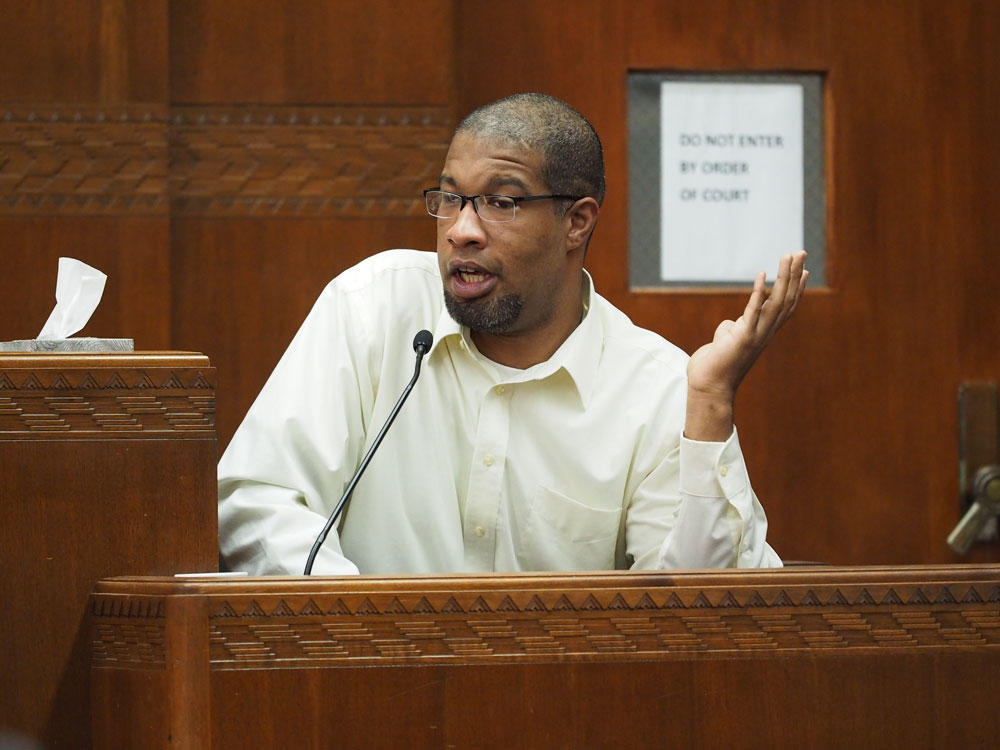
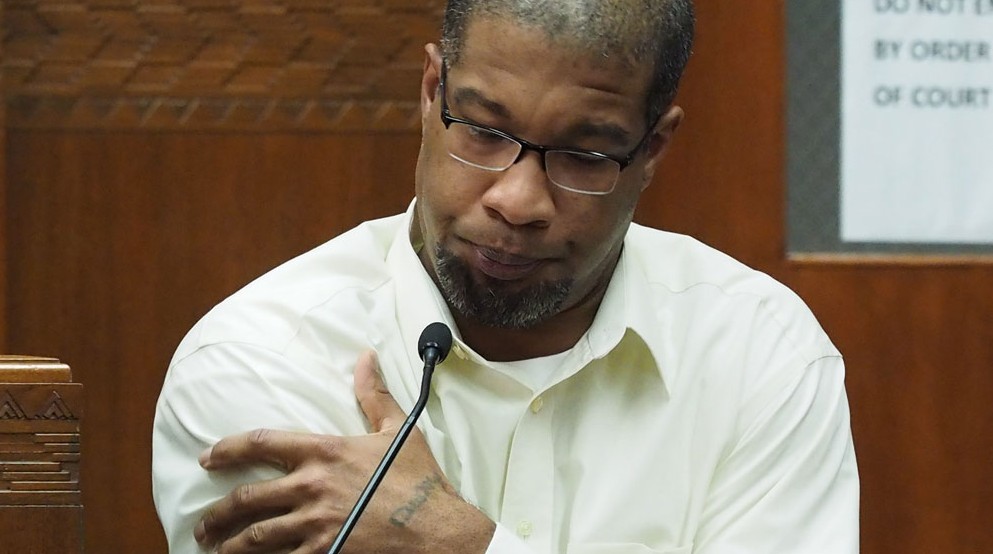
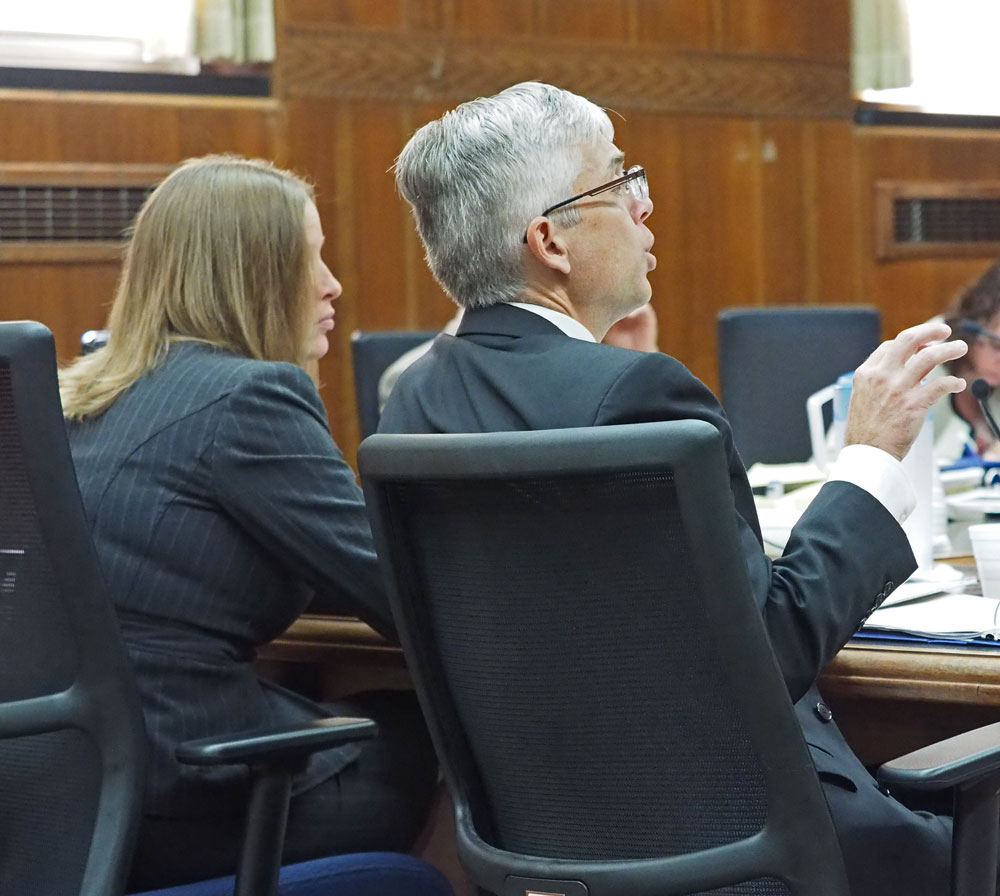
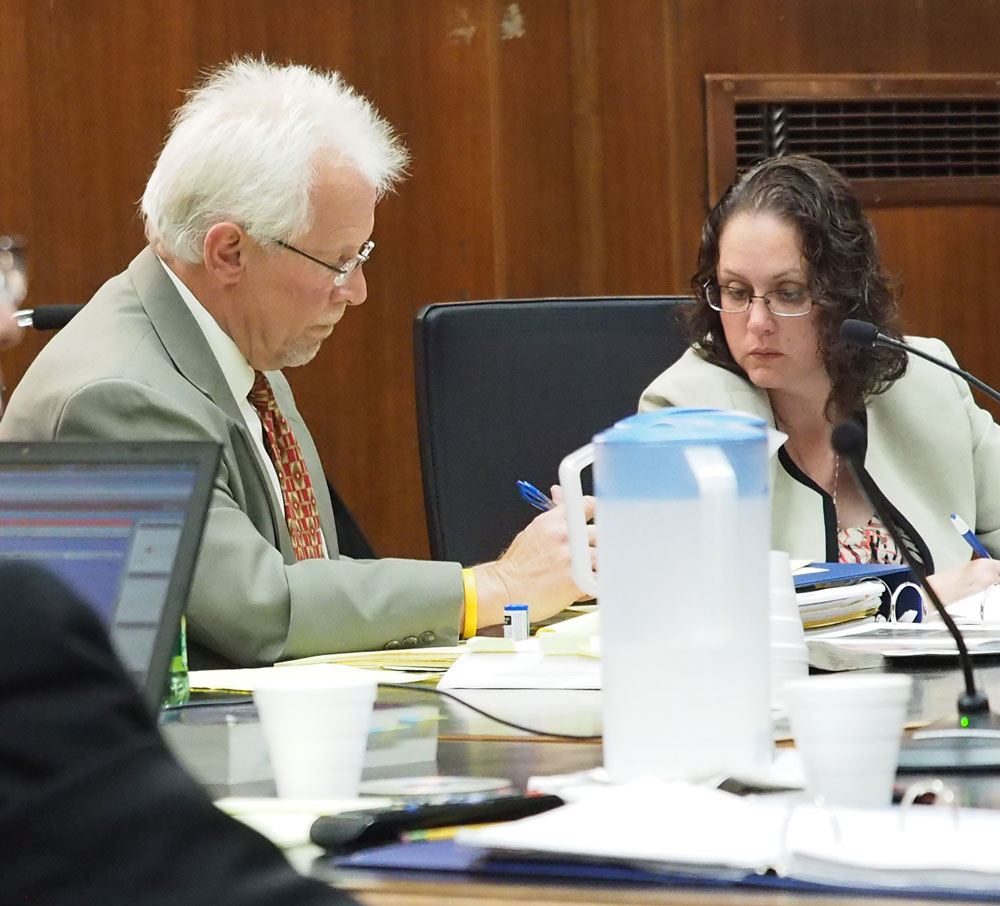
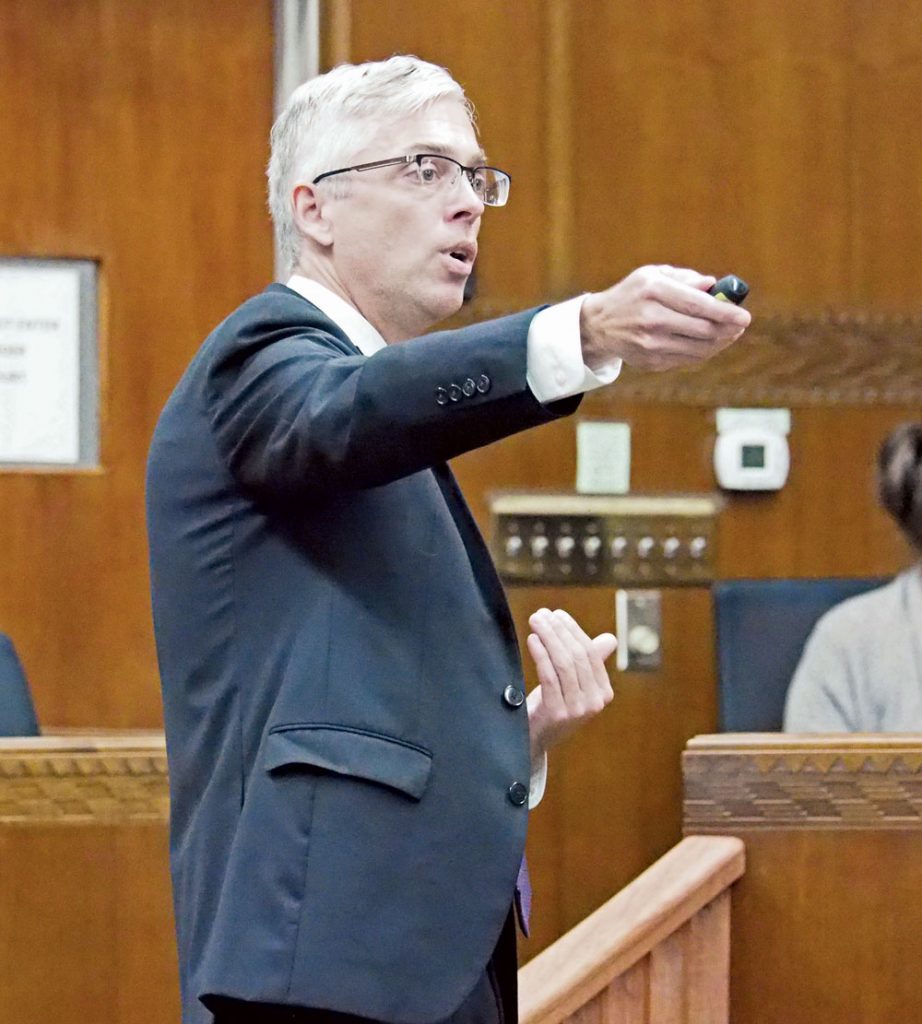
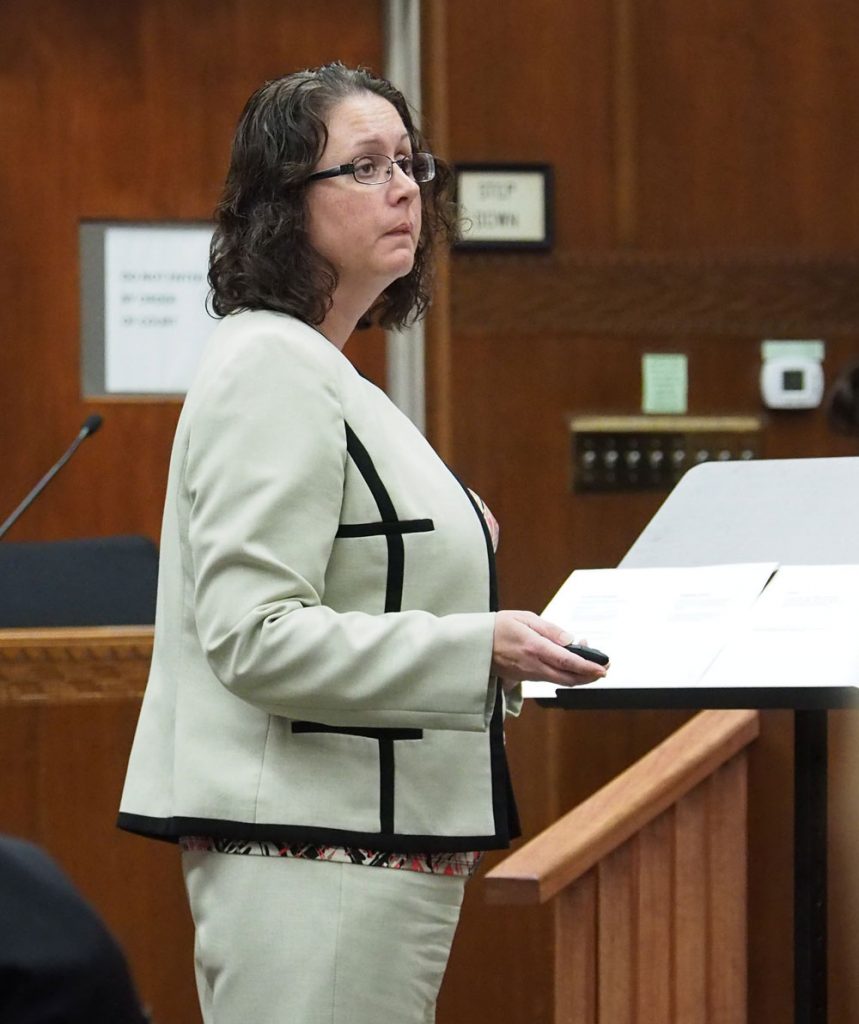
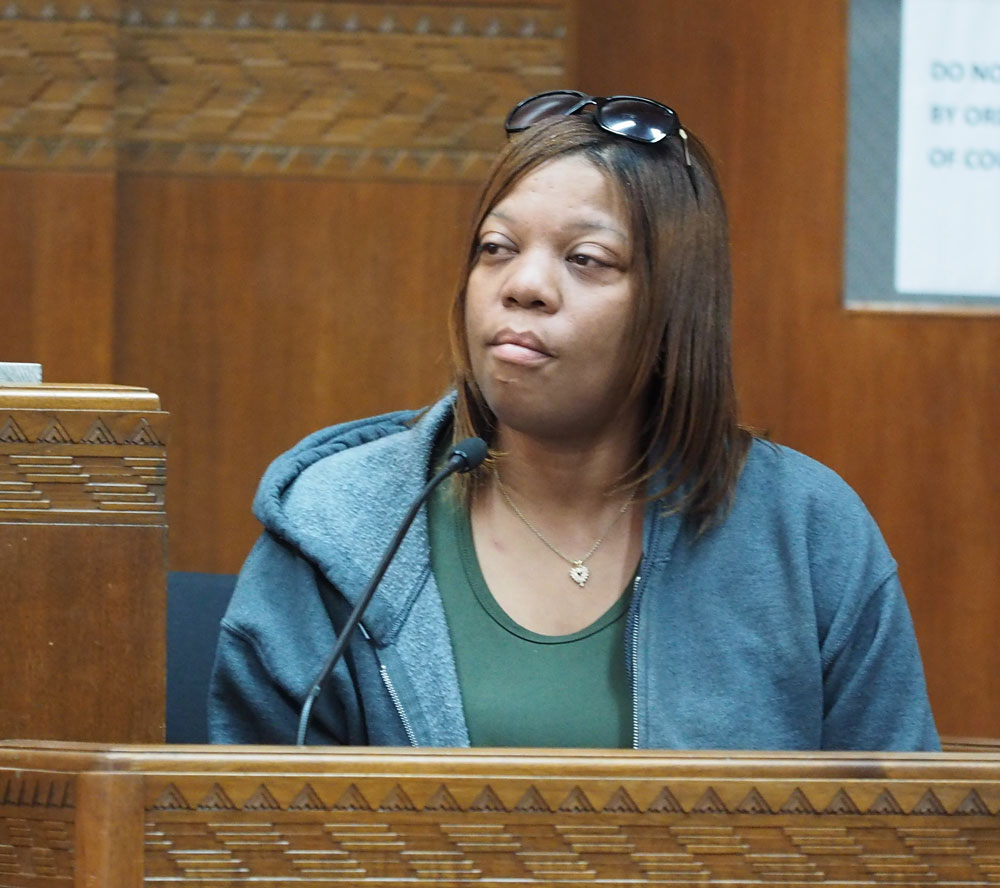
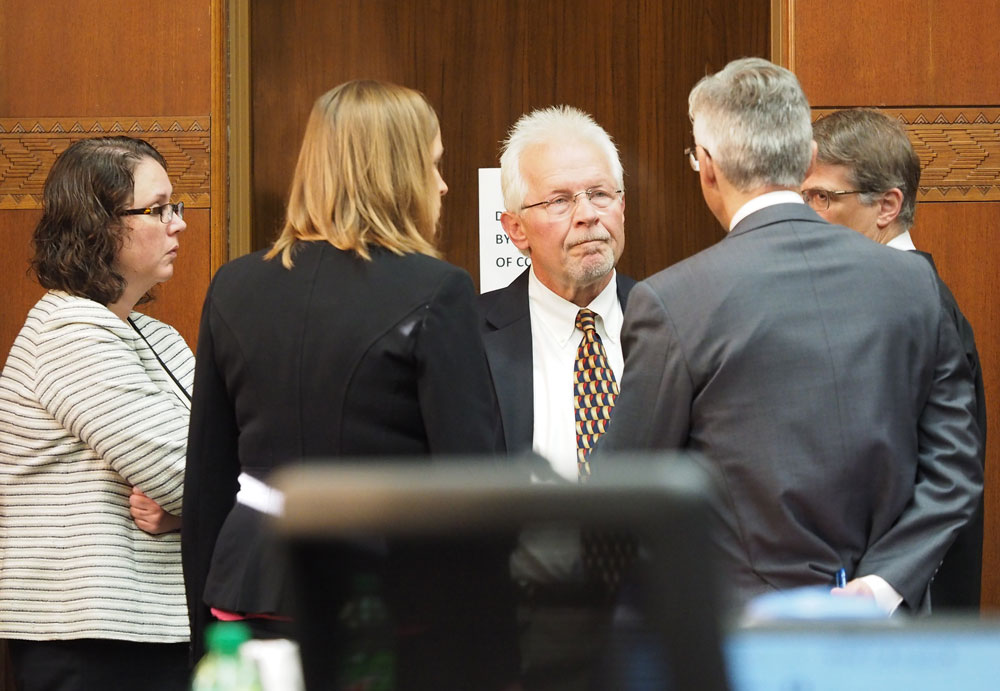
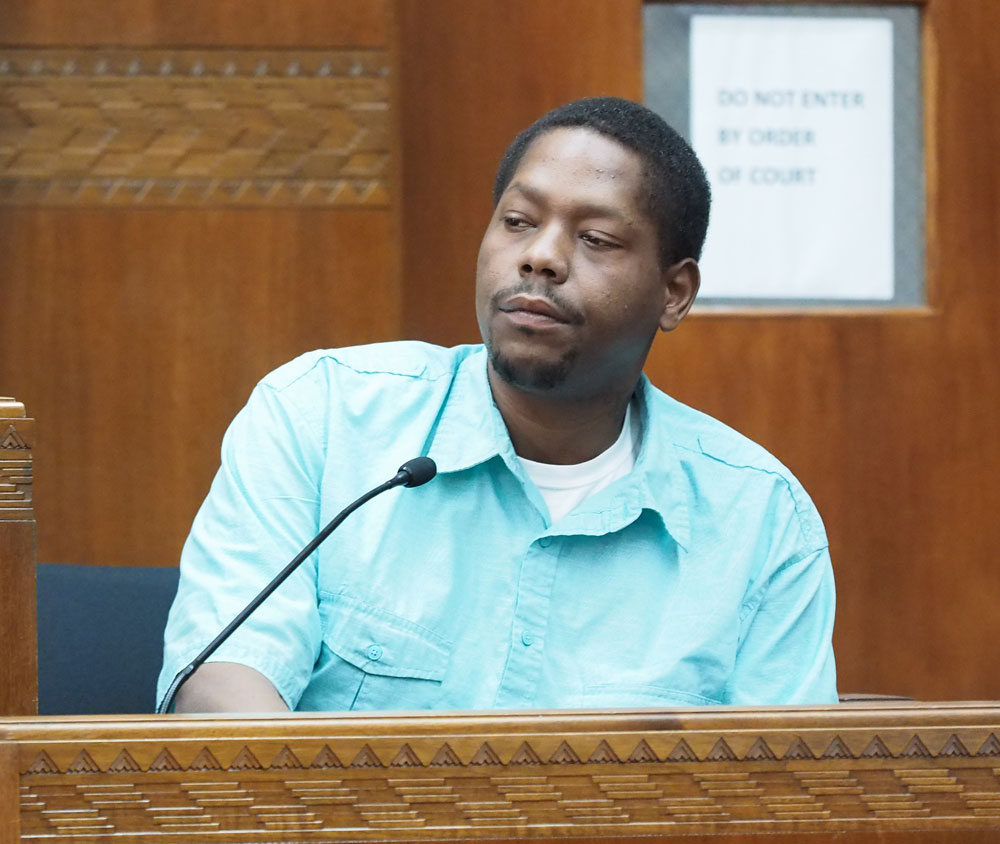
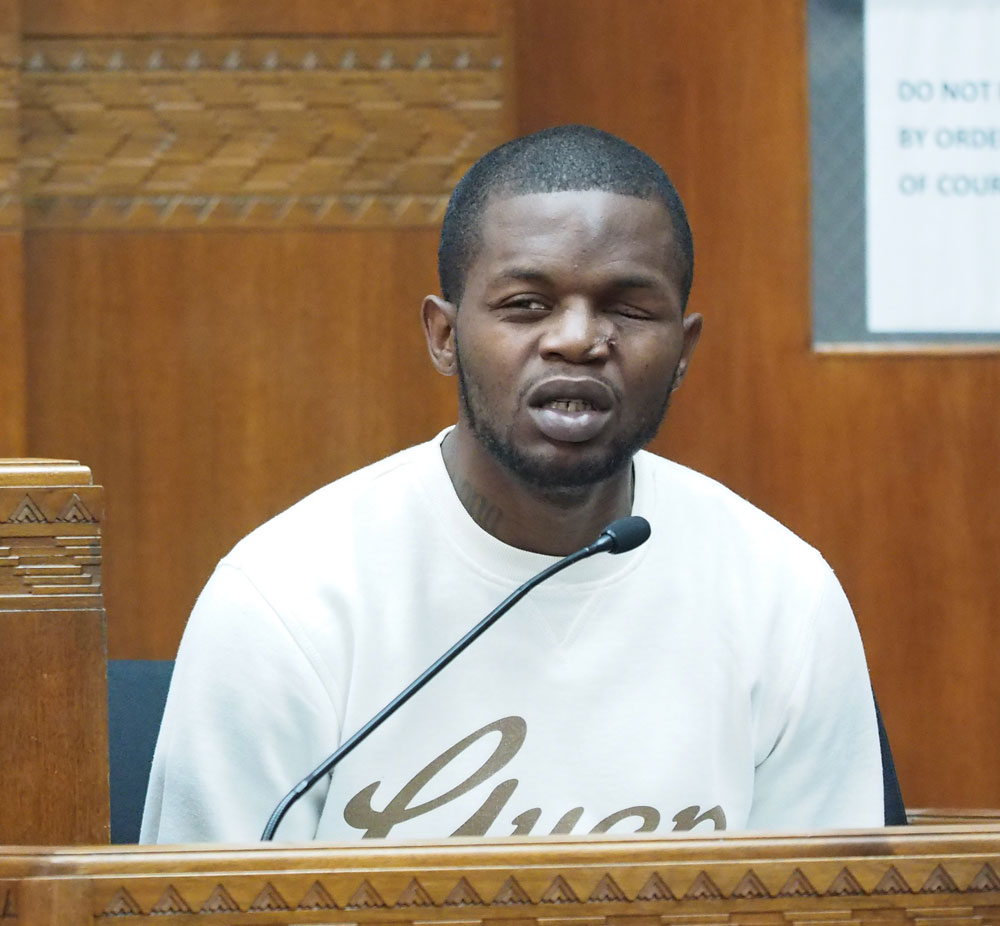
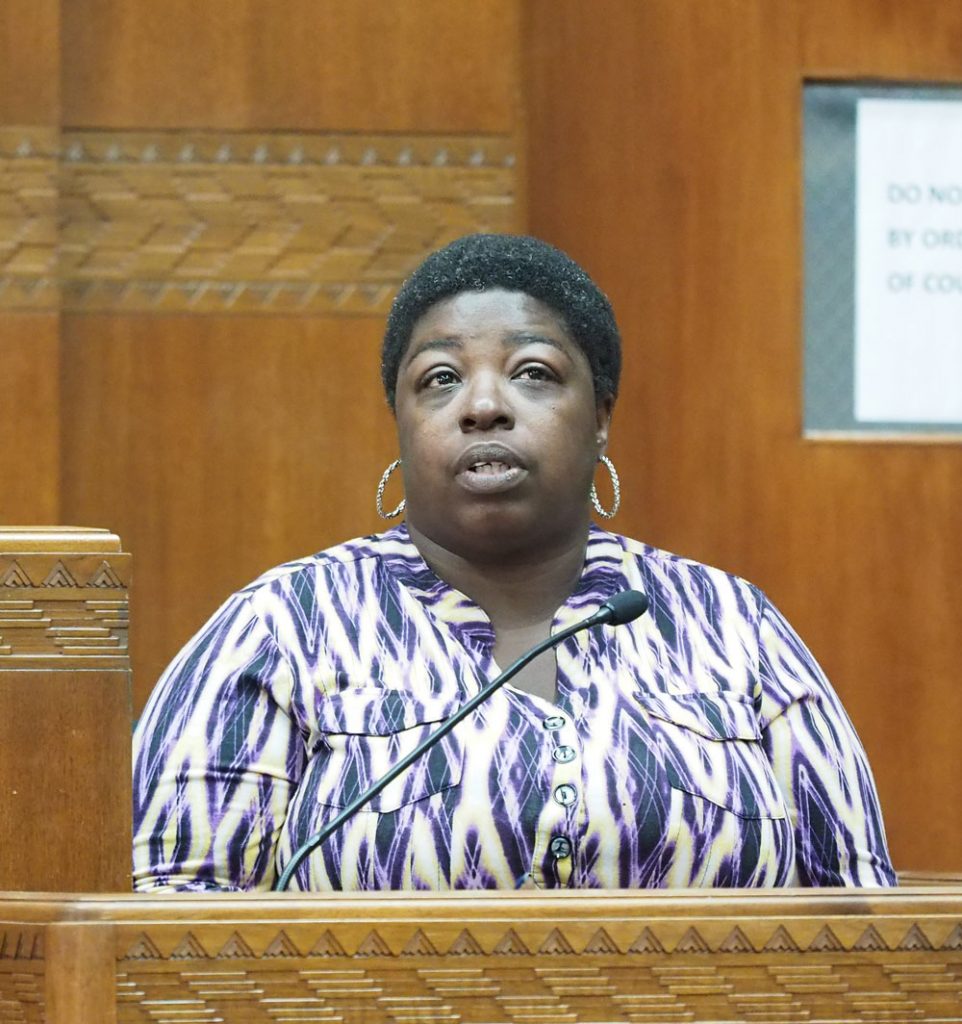
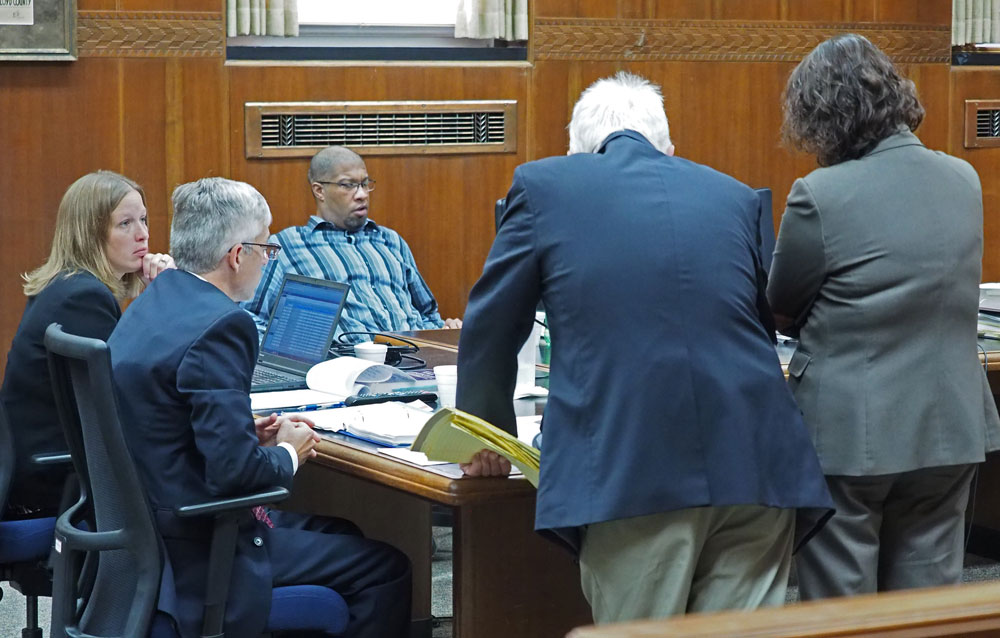
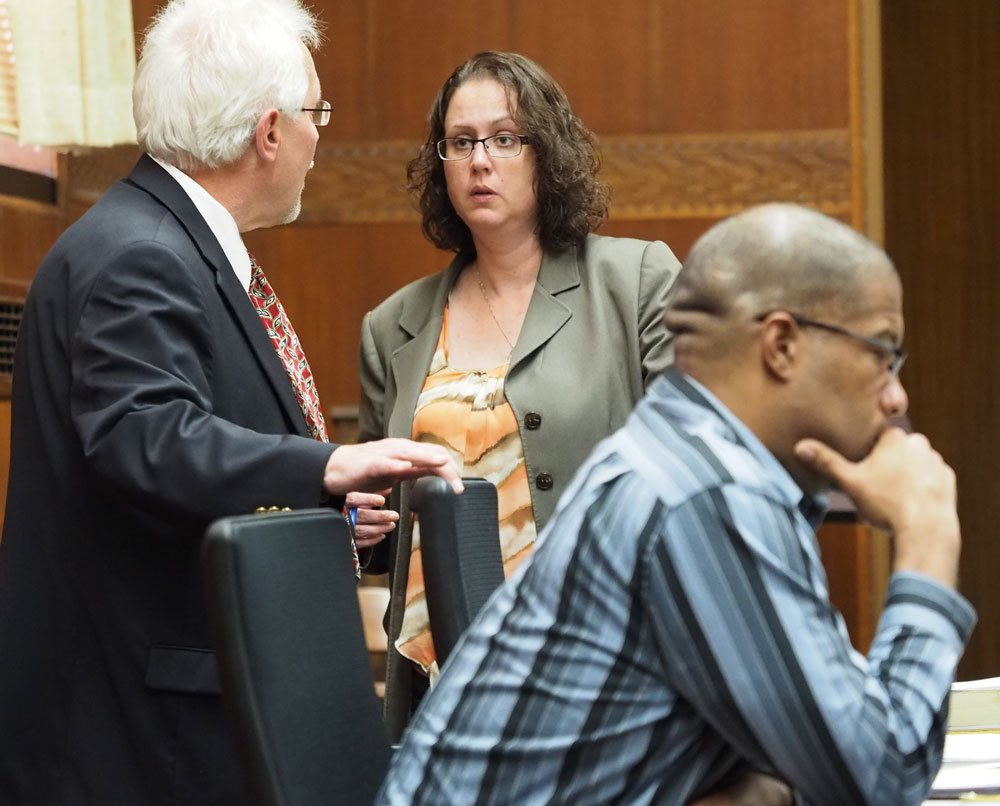
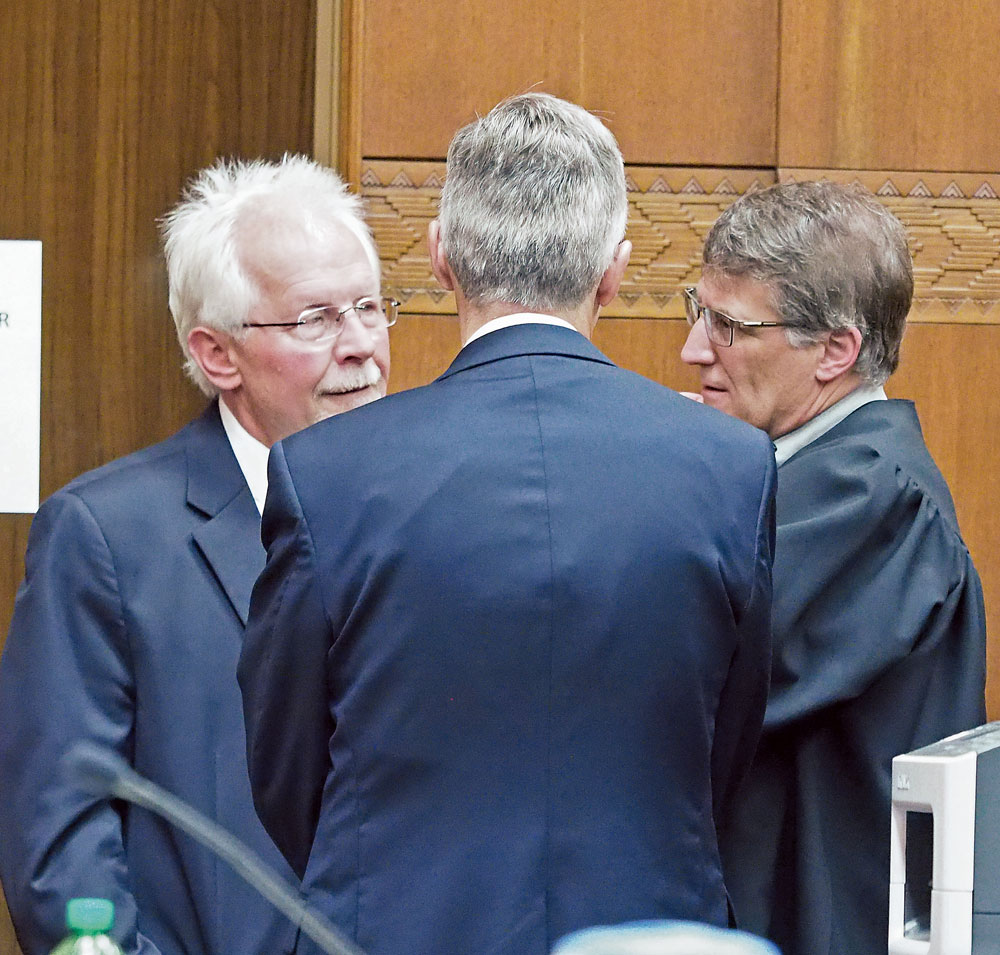
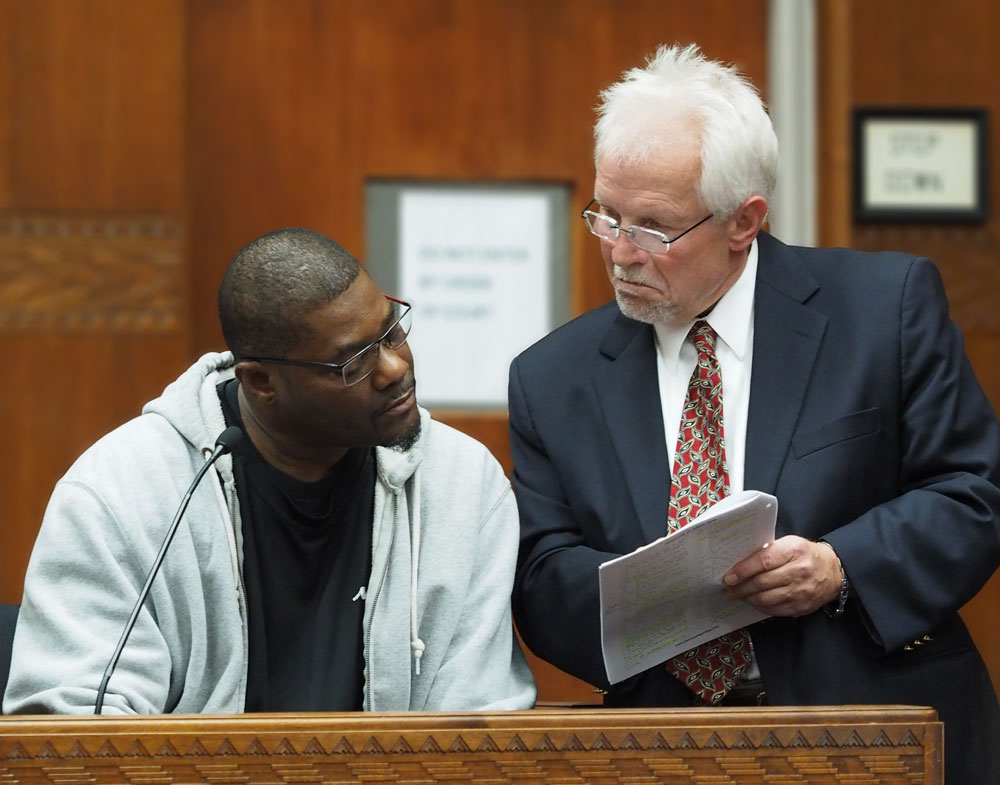
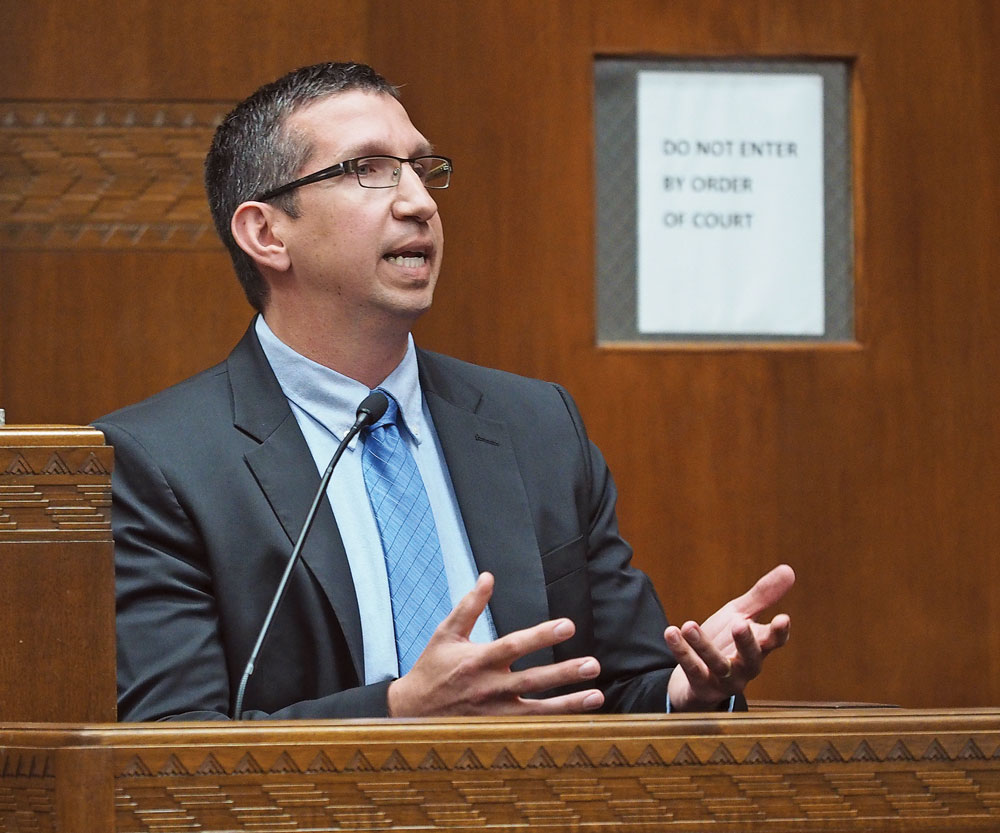
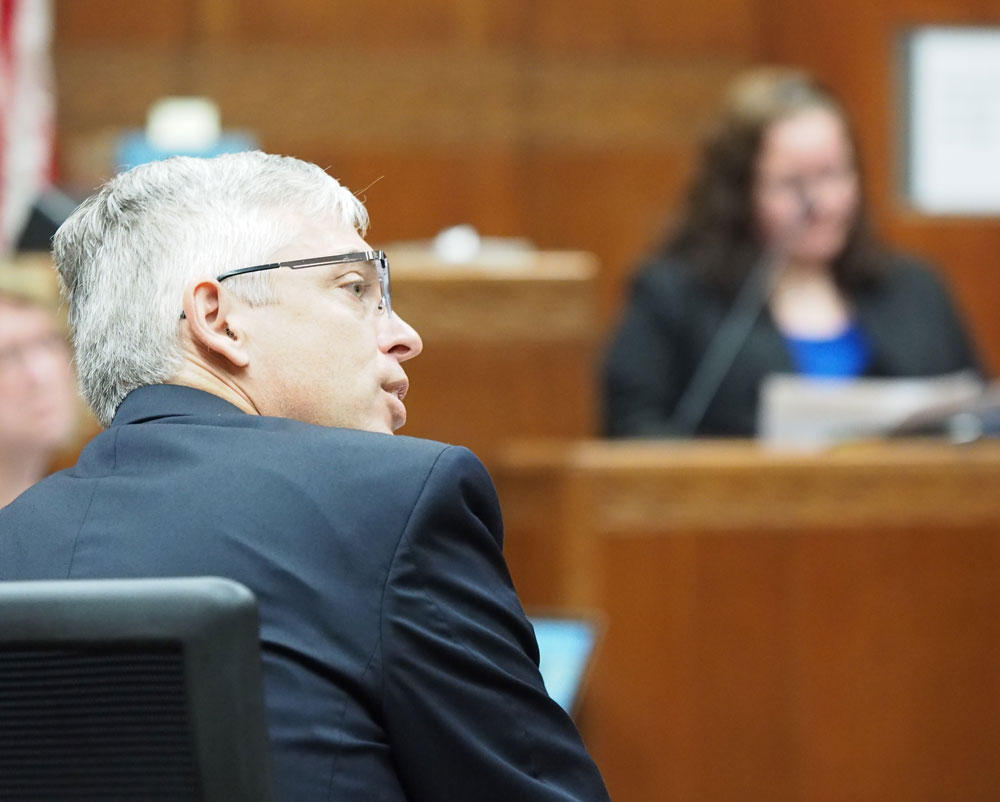
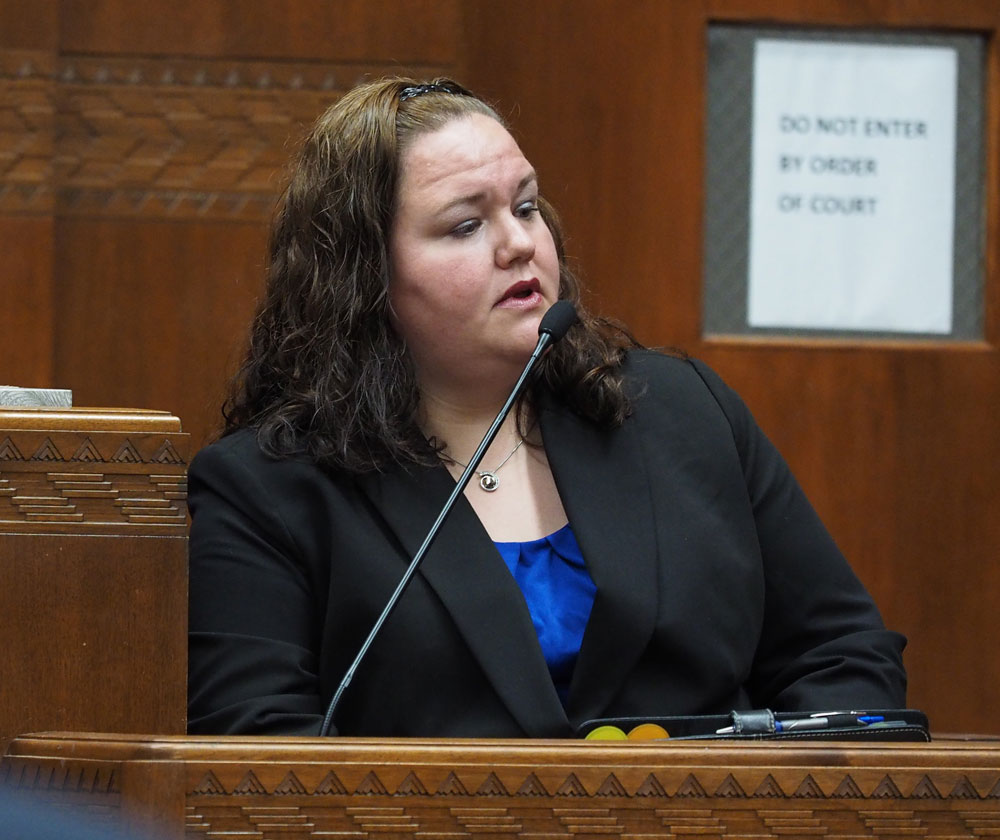
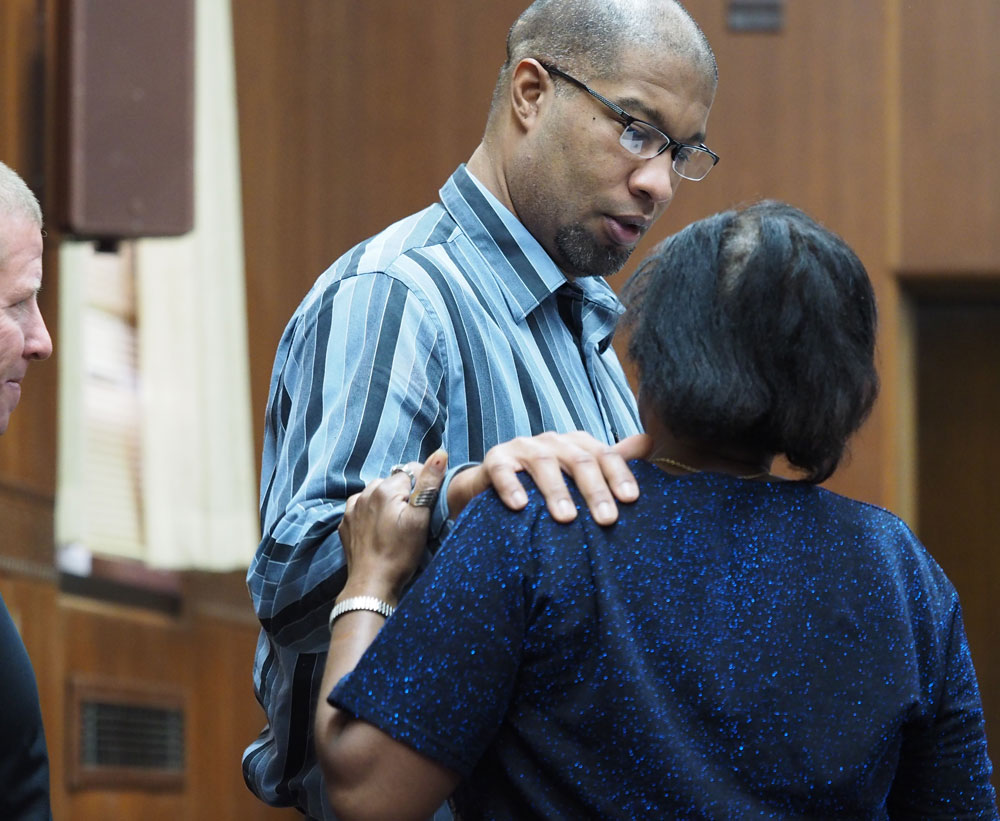
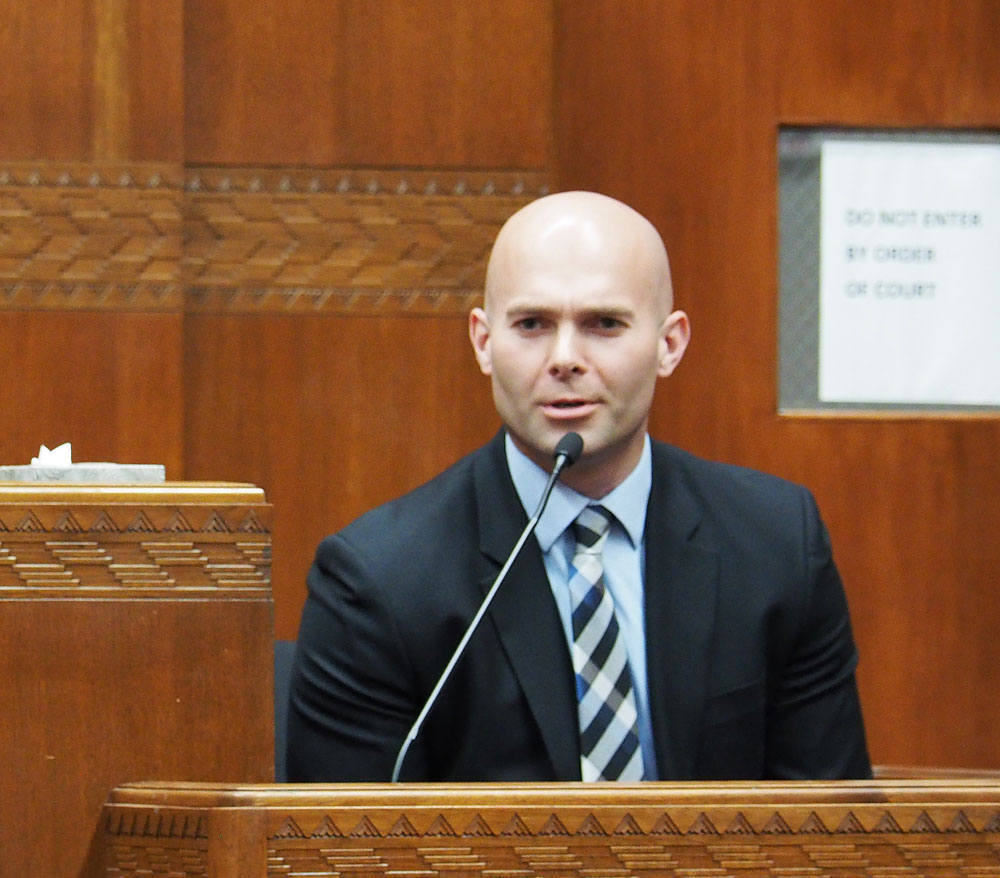
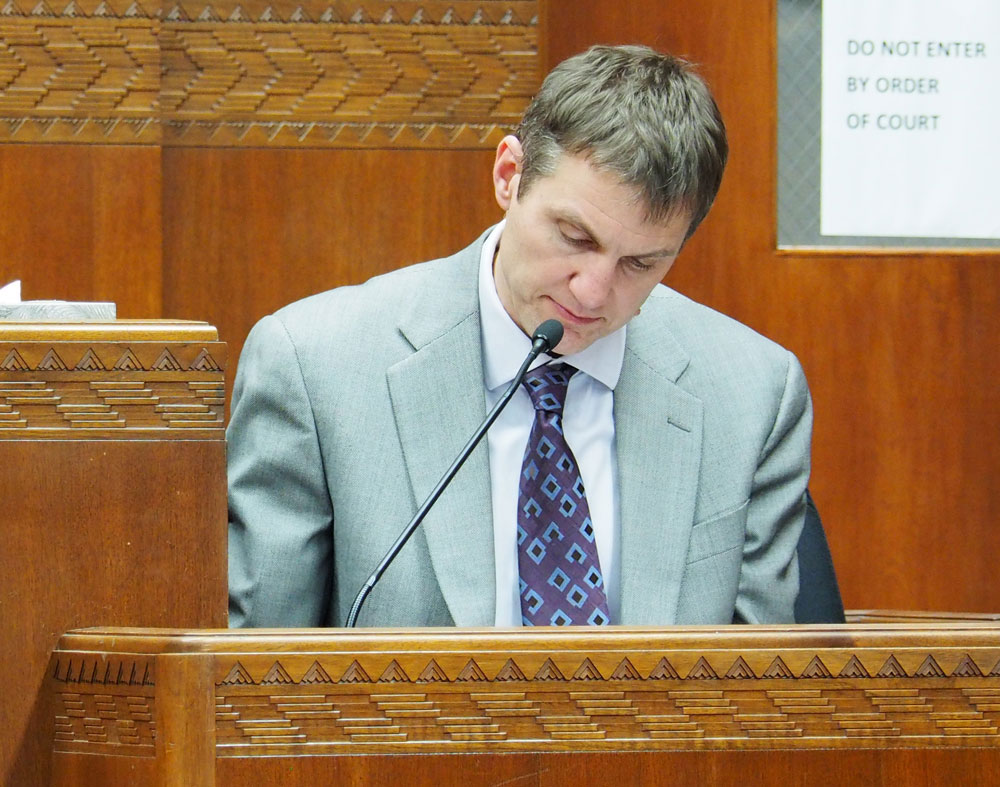
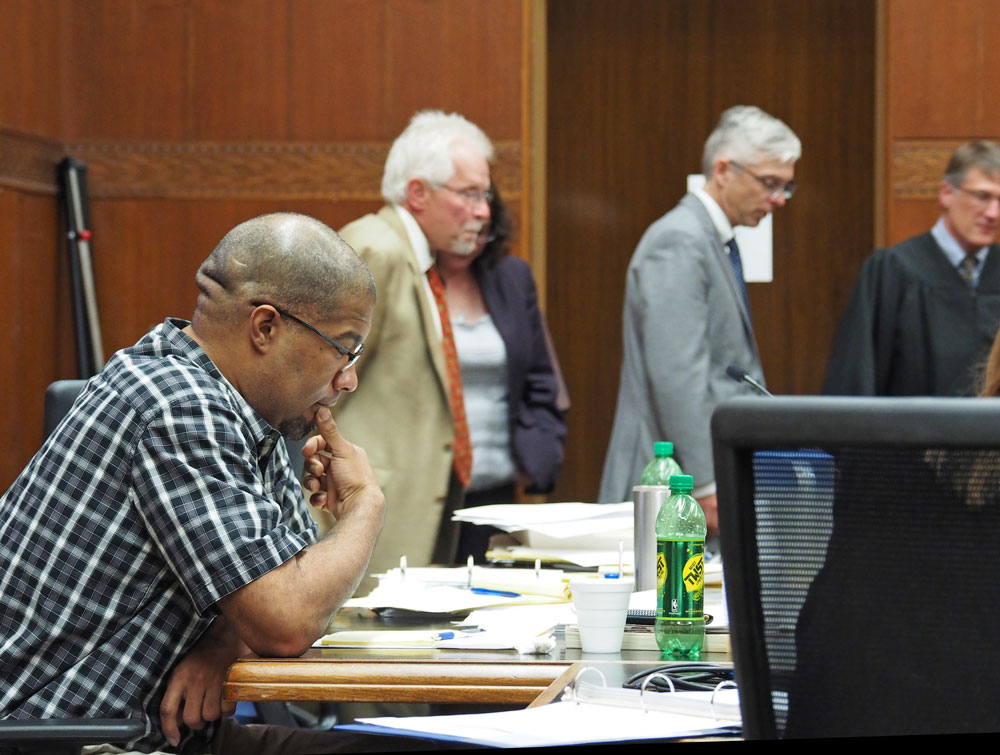
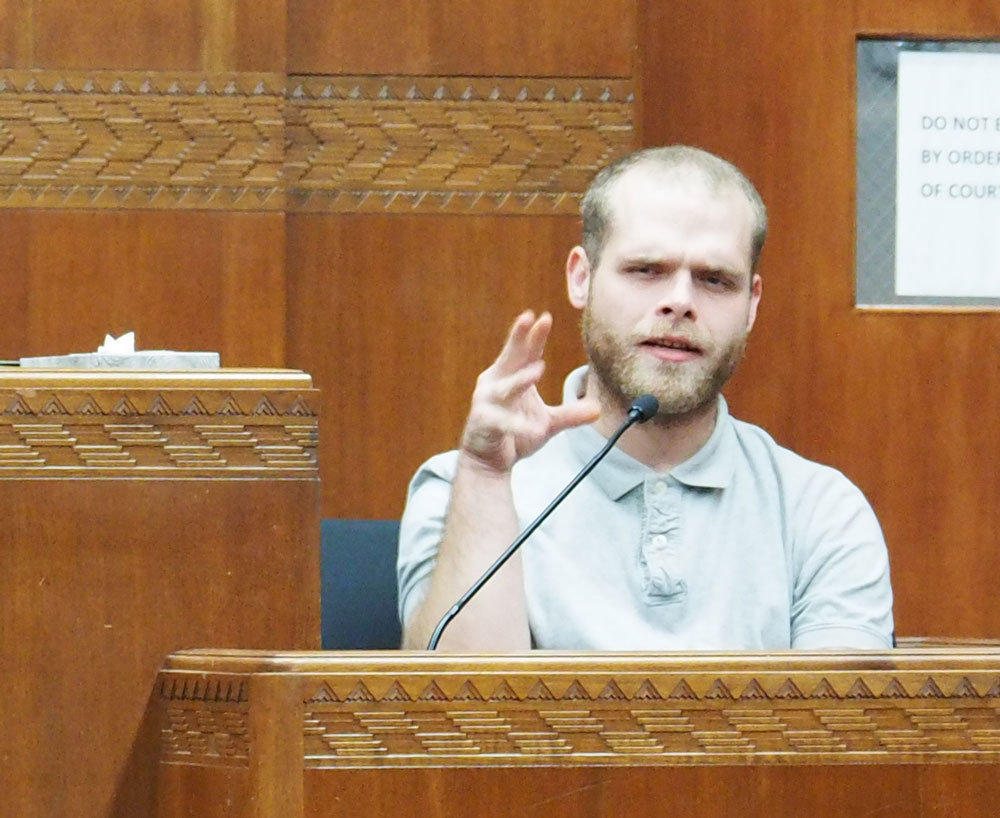
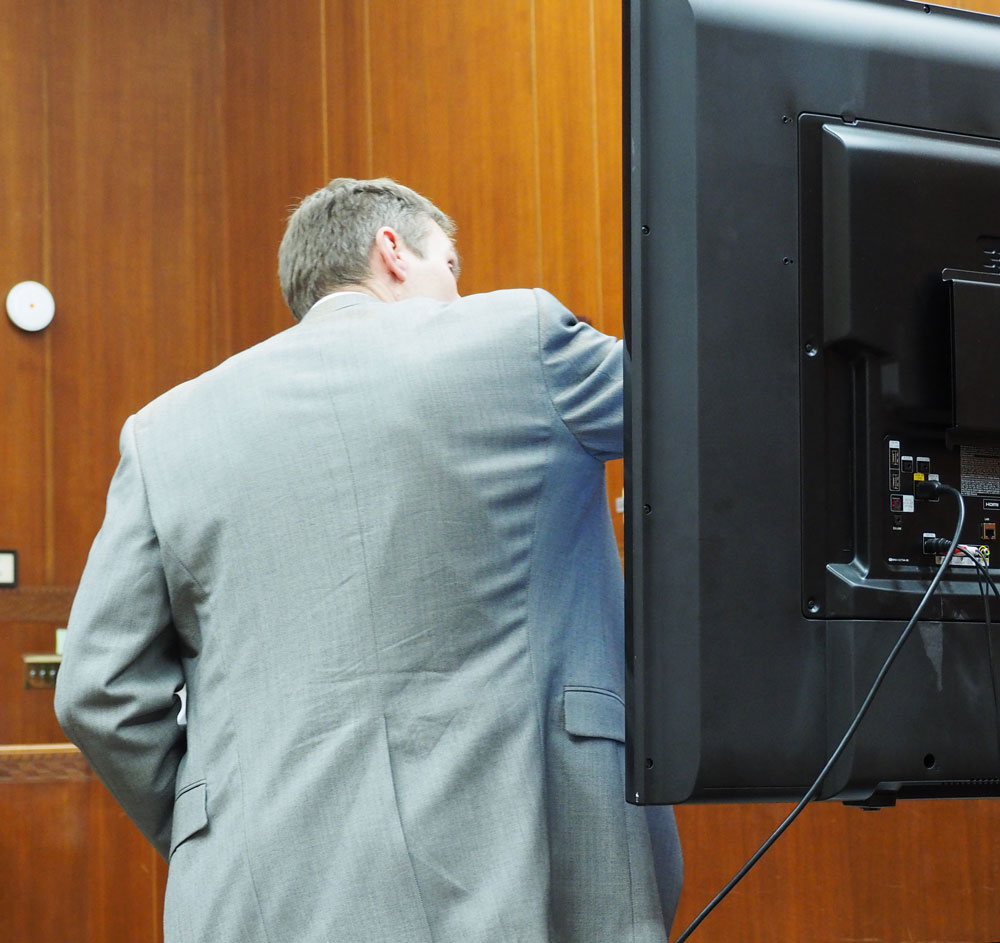
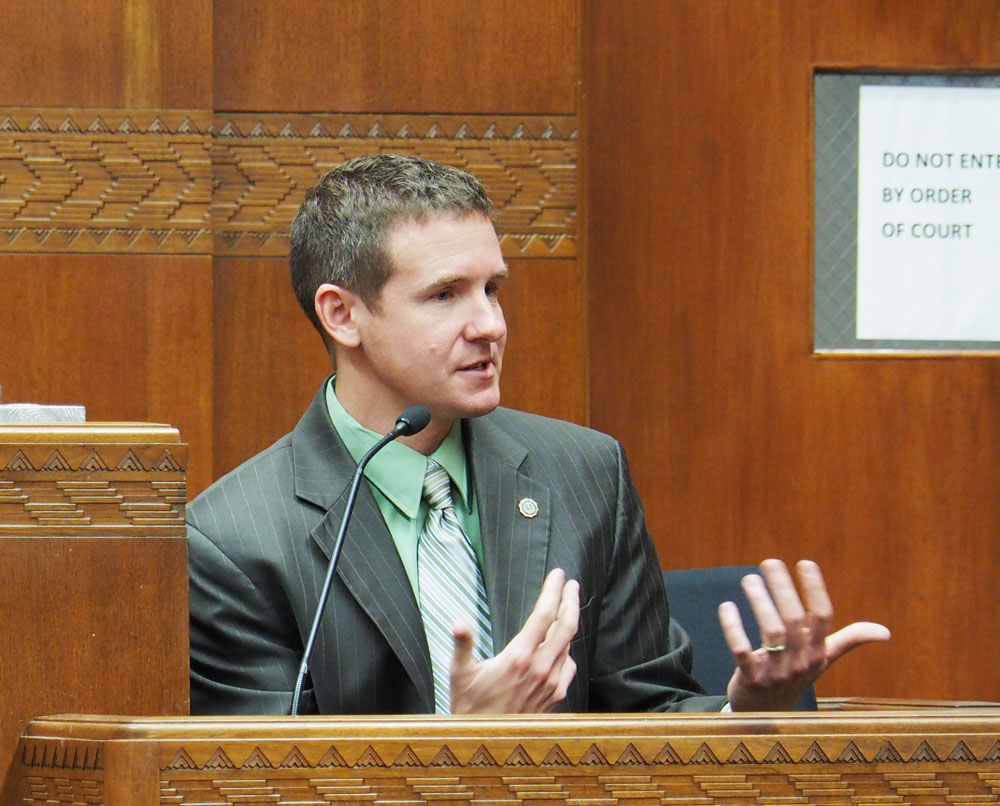
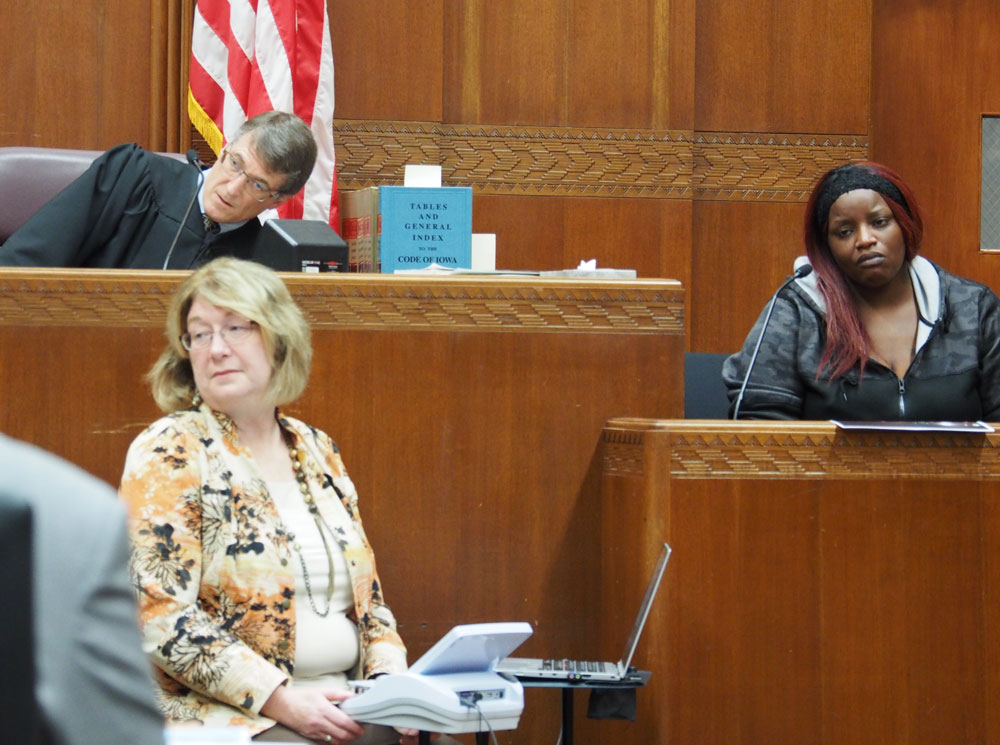


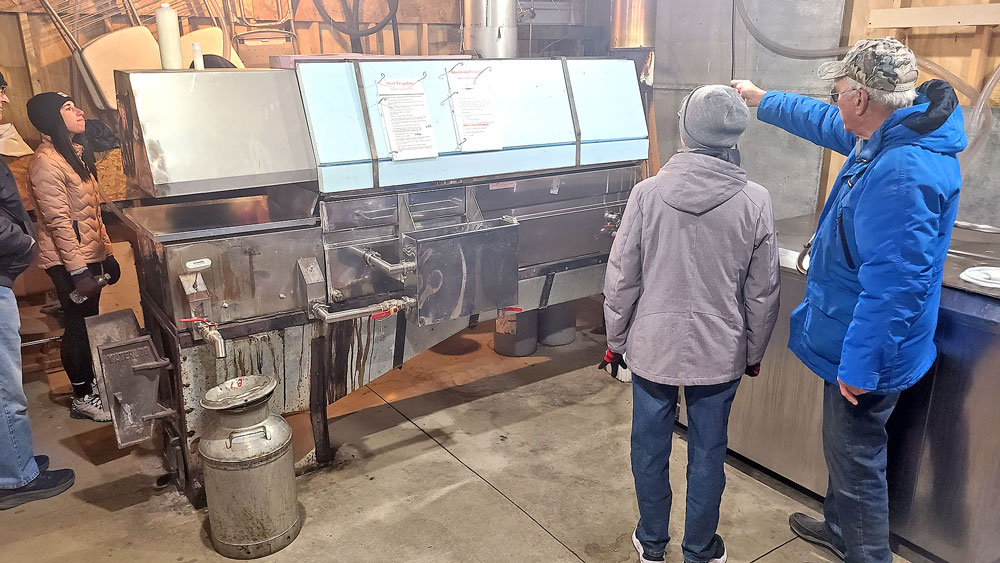

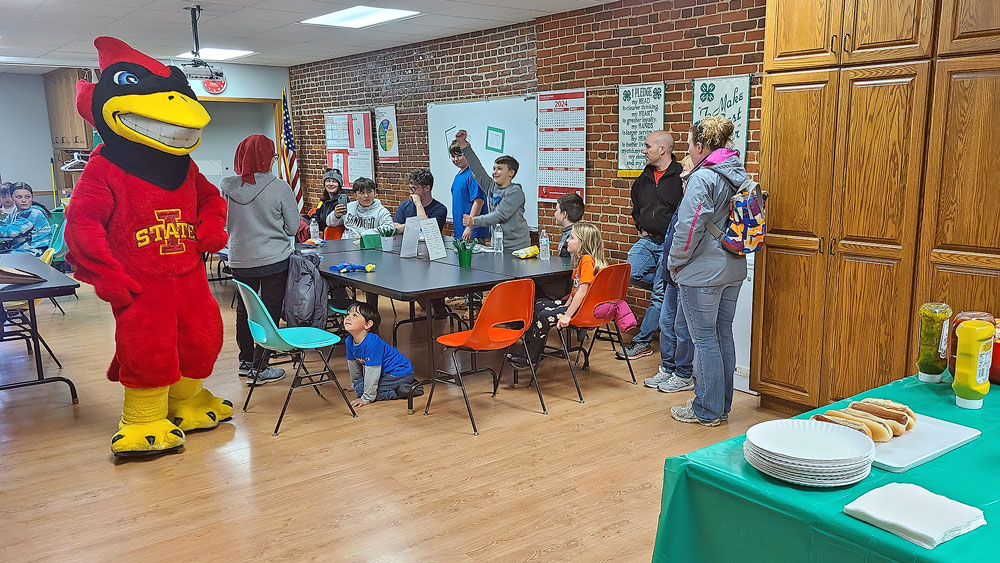
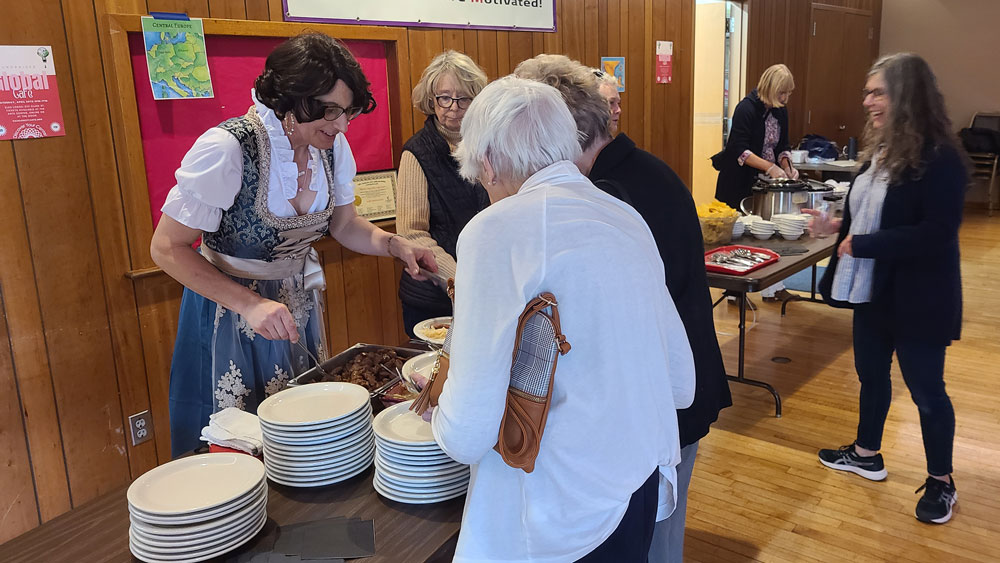


Social Share